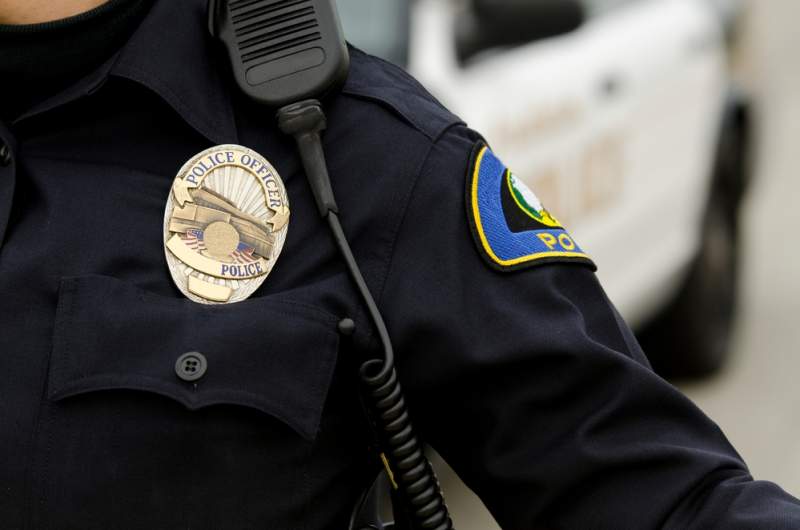If you were arrested for Interfering with the Duties of a Public Servant in Texas—often called “Interference with Public Duties” or, less politely, the “you pissed off a cop” charge—you are not alone. This law is broad, subjective, and frequently filed after a tense encounter. The good news: a skilled defense strategy can often reduce or dismiss the case—especially when your actions were speech-only or recording from a safe distance, when the officer’s order was unlawful or unclear, or when the body-worn camera tells a different story than the police report.
This guide covers the law, penalties, defenses, ways to get cases dismissed (even if you think you’re guilty), and practical tips to avoid turning a street-side disagreement into a Class B misdemeanor. If you’re searching for an experienced Houston criminal defense lawyer, you’ll also learn why Attorney Eric Benavides is a trusted name for these cases in Harris County and the surrounding counties.
Table of contents
- Key Takeaways
- What Is “Interference with Public Duties” in Texas?
- The “Subjective” Nature of the Charge
- Elements the State Must Prove
- Penalties and Ranges of Punishment
- Interference vs. Related Texas Offenses (Know the Differences)
- Defenses That Work
- Ways to Get the Case Dismissed (Even If You Think You’re Guilty)
- Frequently Asked Questions
- Final Thoughts
Key Takeaways
Searching for an Interference with Public Duties lawyer in Houston or a criminal lawyer in Houston? Here’s the quick version:
- Texas Penal Code §38.15 covers Interfering with the Duties of a Public Servant (police, firefighters, EMTs, etc.).
- It’s usually a Class B misdemeanor (up to 180 days jail / $2,000 fine), and yes, you can be arrested on the spot.
- Defenses include speech-only, lawful recording from a safe distance, no actual interference, and unclear/unlawful orders.
- Dismissal paths: bodycam review + speech-only argument, pretrial diversion, deferred adjudication, motions to suppress/dismiss, and mitigation packets.
- Don’t argue roadside. Be calm, step back, record safely; take your fight to court.
- Attorney Eric Benavides is experienced in §38.15 cases in Harris County, focusing on video-driven defenses, targeted motions, and record-protection strategies.
What Is “Interference with Public Duties” in Texas?
Texas Penal Code §38.15 makes it a crime to interrupt, disrupt, impede, or otherwise interfere with a public servant performing their official duties. Public servants under this section include police officers, firefighters, EMTs, peace officers directing traffic, and more (e.g., those investigating a crime, managing a scene, or providing emergency services).
Typical Scenarios
- Crowding officers during a traffic stop or crime scene after being told to stand back.
- Physically placing yourself between officers and a person they are detaining or arresting.
- Ignoring clear lawful orders to step away from an active investigation, crash scene, or fire response.
- Shouting commands over police instructions in a way that causes confusion or hinders the officer’s actions.
- Reaching for evidence, suspects, doors, or equipment while officers are working.
Key nuance: This statute is not meant to criminalize criticism, questions, or polite disagreement. Texas law recognizes a defense if the alleged interference consisted of “speech only.” The line is whether your conduct actually interfered. That gray area is where many cases are won.
The “Subjective” Nature of the Charge
This offense is notoriously fact-specific and can be subjective. One officer might view your behavior as cautious observation; another might view it as interference. And yes—some arrests happen because an officer felt disrespected. That’s why your demeanor and distance matter. The less argumentative and the more compliant you are in the moment, the fewer chances the situation escalates into an arrestable offense.
Practical PSA: If you don’t want to get taken in, don’t argue roadside—about your stop or anyone else’s. Save it for court. Ask for a supervisor if you must, provide identifying information when legally required, and step back when told. Your lawyer can challenge the legality later.
Elements the State Must Prove
To convict you, prosecutors generally must prove beyond a reasonable doubt that:
- You interrupted, disrupted, impeded, or interfered with a public servant;
- The person was a public servant performing lawful duties;
- You knew they were a public servant; and
- You intentionally engaged in conduct that interfered (not merely existing nearby, observing, or speaking).
Two critical pressure points in many cases:
- Was the officer’s order lawful and clear?
- Did your actions truly interfere—or were they speech only / recording at a safe distance?
Penalties and Ranges of Punishment
Interference with Public Duties is typically a Class B misdemeanor in Texas.

- Class B misdemeanor: Up to 180 days in county jail, and/or up to a $2,000 fine.
- Probation (community supervision) is common for first-timers, but a conviction still creates a criminal record that can affect employment, housing, and licensing.
- Collateral consequences: background checks, immigration concerns for non-citizens, and potential driver’s license or professional licensing headaches when paired with related conduct.
Important: Even though it’s a misdemeanor, an officer can arrest you on the spot. Getting cuffed is not a sign the case is strong; it’s a sign the encounter escalated. The courtroom is where the actual fight happens.
Interference vs. Related Texas Offenses (Know the Differences)
People confuse this charge with other common Texas offenses. Knowing the difference helps shape strategy:
- Disorderly Conduct (§42.01): Often about noise, fighting, or offensive display.
- Failure to Identify (§38.02): Applies only if you’re lawfully arrested (or if you’re a suspect and give false ID during a lawful detention). Merely refusing to ID during a consensual encounter is not this offense.
- Resisting Arrest (§38.03): Requires force against an officer’s efforts to arrest or search.
- Evading Arrest (§38.04): Running away from a lawful detention/arrest.
- Obstruction / Retaliation (§36.06): More serious—threats or harm in response to duties.
- Tampering with Evidence (§37.09): Hiding/destroying evidence can be a felony.
Why it matters: Prosecutors sometimes file Interference when none of the above truly fits, using it as a catch-all. That creates legal vulnerabilities your defense can exploit.
Defenses That Work
1) Speech-Only Defense
Texas law recognizes a defense when the alleged interference consisted solely of speech. You can question, criticize, or verbally disagree with officers—even strongly—as long as you do not physically interfere or cross into threats/disorderly conduct. Bodycam and bystander video often make or break this defense.
2) Recording the Police from a Safe Distance
You are generally allowed to record police in public as long as you don’t physically impede their work and you obey lawful, content-neutral safety instructions (e.g., “stand behind the tape,” “step back 20 feet”). If your conduct was documentary, peaceful, and at a safe distance, the charge is vulnerable.
3) No Lawful Duty / Unclear or Unlawful Order
If the officer’s underlying action was not lawful (e.g., no reasonable basis to order you away; inconsistent instructions; moving lines that set you up to fail), the Interference theory weakens. Vague commands like “stop bothering me” or “go away” without a safety reason are ripe for challenge.
4) No Actual Interference
The State must show your actions actually impeded. If an officer kept doing their job with no delay or change in procedure, “interference” may be a stretch.
5) Mistaken Identity / Misinterpretation
Night scenes, crowds, poor audio, and chaotic events produce bad assumptions. If the video doesn’t match the narrative—or the “interferer” is someone else—reasonable doubt follows.
6) Necessity / Defense of Others (Narrow)
In rare cases, stepping in briefly to prevent imminent harm can create a narrow necessity defense. It’s fact-intensive and not a first-line strategy, but it exists.
Ways to Get the Case Dismissed (Even If You Think You’re Guilty)
No attorney can guarantee outcomes, but these pathways are common in Houston-area courts:
A. Evidence-First Review (Bodycam/Dashcam/Third-Party Video)
Insist on reviewing all video. Many Interference cases collapse once the scene is viewed calmly. If the video shows speech-only or compliance at a safe distance, your attorney can push for dismissal.

B. Pretrial Diversion (PTD)
If you have a clean or limited record, Harris County may consider diversion: complete agreed conditions (no new offenses, class(es), community service), and the case is dismissed. Diversion avoids a conviction.
C. Deferred Adjudication
You enter a plea, the court withholds a finding of guilt, you complete probation terms, and the case is dismissed. Later, you may qualify to seal the record by Order of Nondisclosure (eligibility depends on the final disposition and your history).
D. Motions to Suppress / Dismiss
If the order you allegedly violated was unlawful, or the stop/detention lacked legal footing, your lawyer may file motions that cripple the State’s proof. Sometimes prosecutors dismiss rather than defend a shaky stop in a contested hearing.
E. Negotiated Reduction
In borderline cases, the State may accept a non-criminal outcome (fine-only city ordinance violation) or a lesser misdemeanor that is easier to seal later—especially with apology letters, community service, or civics/communication classes.
F. Mitigation Packet
A thoughtful packet—employment/school proof, community letters, no prior record, voluntary class completion (e.g., de-escalation/communication), and evidence of respectful conduct post-arrest—helps prosecutors feel safe dismissing or reducing.
Practical Tips: How Not to Turn a Stop Into an Arrest
- Be calm, be brief, be boring. Keep your voice neutral.
- Distance is defense. If told to step back, actually step back—more than the minimum.
- Don’t argue roadside (about your stop or anyone else’s). Ask for a supervisor if needed.
- Record from a safe distance without physically inserting yourself or barking commands.
- Never touch officers, suspects, doors, evidence, or equipment.
- Know the magic phrase: “Am I free to leave?” If no, ask, “Am I being detained? For what offense?” Then comply physically and keep your lawyer fight for later.
- If arrested, stop talking. Politely request an attorney: “I want a lawyer.” Don’t explain. Don’t negotiate.
These habits won’t guarantee you’ll avoid arrest (remember: the statute is subjective), but they dramatically improve both your street outcome and your courtroom outcome.
How Prosecutors Evaluate Interference Cases
In Harris County, ADAs typically consider:
- Bodycam/dashcam: does it show actual interference or just words?
- Scene safety: were there officer-safety or public-safety reasons for the command?
- Clarity of commands: were instructions lawful, clear, and consistent?
- Your behavior after commands: did you comply or escalate?
- Your record & mitigation: first-time offense? stable employment? community ties?
Translation: The more your conduct looks like speech-only or safe recording, and the faster your lawyer delivers a clean mitigation packet, the better your odds for dismissal or reduction.
What to Do Immediately After an Arrest for Interference
- Write down everything (timeline, quotes, distances, where you stood). Memory fades fast.
- Secure video (your phone, companions, bystanders, nearby businesses, doorbells).
- Gather witnesses with contact info and brief summaries.
- Avoid social media commentary; it can be misread and used against you.
- Call a Houston defense lawyer with experience in §38.15 cases.
Why Hire Attorney Eric Benavides for Interference with Public Duties
Eric Benavides is a Houston criminal defense attorney who regularly defends Interference with Public Duties charges in Harris County and surrounding counties. Clients choose him because he:

- Knows how to leverage bodycam/video to show speech-only or no actual interference.
- Files targeted motions to challenge unlawful orders and vague commands.
- Builds mitigation packets that humanize clients and make dismissals easier for prosecutors.
- Is comfortable taking close calls to hearings, where video often beats narrative.
- Offers bilingual representation (English/Español) and a no-judgment approach that turns panic into a plan.
Bottom line: Whether the officer was truly impeded—or simply irritated—often decides these cases. Eric’s approach focuses on facts, footage, and fairness to push for dismissal.
Sample Case Paths (Realistic, Not Promises)
- Best-case: Pretrial diversion → dismissal → later nondisclosure eligibility.
- Very good: Deferred adjudication → dismissal on completion → possible sealing.
- Negotiated: Reduction to lesser offense, minimal fine, quick closure.
- Trial posture: When video shows no actual interference or only speech, a firm trial stance can trigger State dismissals or not-guilty verdicts.
Frequently Asked Questions
Is “Interference with Public Duties” a felony?
No. It’s typically a Class B misdemeanor (up to 180 days jail / $2,000 fine).
Can I be arrested even if I was just talking?
Yes—officers can arrest first, but speech-only is a statutory defense. The courtroom—not the curb—decides.
Am I allowed to record the police?
Generally, yes, in public places from a safe distance, so long as you don’t physically interfere and you follow lawful, safety-based directions.
What if I was helping someone?
“Helping” that physically impedes officers is risky. There are narrow necessity/defense-of-others arguments, but they’re fact-intensive.
Can this be expunged or sealed?
If the case is dismissed, you may qualify later for expunction. If you complete deferred adjudication, you may qualify for nondisclosure. Ask your lawyer for a record-clearing roadmap on day one.
Final Thoughts

Interfering with the Duties of a Public Servant is often charged when an encounter gets tense or confusing. It’s subjective, and arrests can happen even when you believed you were just talking or recording. That’s why the most important moves are:
- Stay calm and step back in the moment.
- Preserve video and witnesses after.
- Call an experienced Houston defense lawyer quickly.
If you or a loved one faces an Interference with Public Duties charge in Houston or the surrounding area, contact Attorney Eric Benavides. With a video-first strategy, targeted motions, and smart mitigation, you can maximize your chances of a dismissal, reduction, or outcome that protects your record and future.